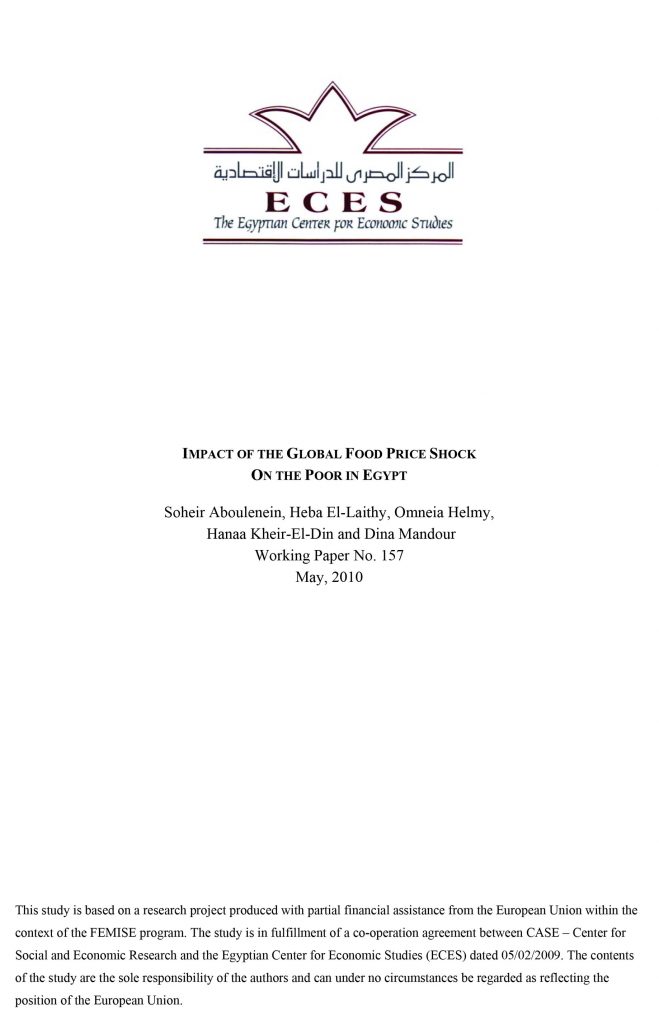Abstract:
The government of Egypt (GOE) has adopted a set of policy responses to mitigate the negative impact of the food price surge, particularly on the poor. Policy interventions encompassed price oriented policies to reduce the impact of the global food price shock on domestic prices through increasing consumer food subsidies and better targeting them towards those who need them most, lowering tariffs and imposing export bans; income oriented policies to compensate the most vulnerable groups for income loss through cash transfers and food ration cards; and a number of supply oriented policies to induce an increase in the production of agricultural products, mainly wheat. The purpose of this study is to assess the impact of global food price changes on Egypt’s macroeconomic performance, poverty levels and income distribution and evaluate the effects of different policy options that the GOE is likely to implement in order to protect the most vulnerable segments of the population without jeopardizing the fiscal balances. Following an analysis of Egypt’s food policy, the study investigates the policy’s effectiveness in alleviating poverty and assesses its impact on the fiscal position. It then assesses the impact of soaring world food prices on Egypt’s macroeconomic performance under different scenarios of policy interventions, followed by estimating the effect of the global food price shock on poverty and income distribution in Egypt under the same scenarios of policy interventions.

